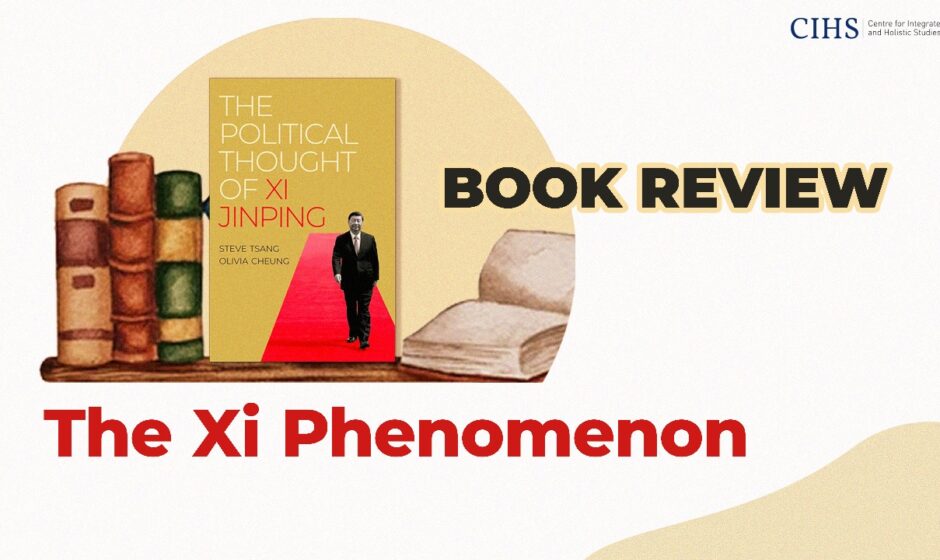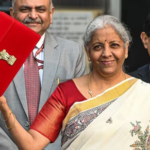Book by Tsang, Steve and Olivia Cheung: The Political Thought of Xi Jinping, Oxford University Press, New York, (2024).
Dr Amritpal Kaur
There are rare moments in contemporary, post second world war history where a single country could challenge international order so comprehensively while sitting in the wings for most of the time. It can only be facilitated by mercurial rise in its fortune and prosperity to propel or make any entity so significant that their actions and reactions generate waves around the world.

China story is exactly that which captures its economic rise while the politico-economic-historical antecedents continue to be an enigma for global communities. Yet, it is a country that’s challenging accepted norms for nation-states in international order. At the centre of this debate on China’s rise and its aggressive behaviour is the leadership of President Xi Jinping who has turned a virtual dictator in the communist party order.
The book, The Political Thought of Xi Jinping, seeks to deal with the phenomenon called Xi Jinping. Xi’s political thought has become important to understand contemporary China essentially because unlike his predecessors led by Deng Xiaoping, Xi grabbed and held onto the supreme political power within Chinese Communist Party and Peoples’ Republic of China.
This surreal rise of Xi’s dictatorship is unprecedented since days of Mao Zedong with implications largely unknown for future of Party-state of China. The book contextualizes Xi thought within Marxist-Leninist framework where the party helmed by a singular entity is lynchpin of domestic political system and international posturing.
As far as domestic system is concerned, the debate is largely settled since supremacy of CCP is unquestionable and is unchallenged. Both the power and propaganda of CCP are aimed to ensure regime’s iron-clad grip on the people, their lives and destiny including families. Xi’s over-bearing influence along with his close inner circle coterie is so huge that, even CCP fades away pathetically before this towering personality propped up by business tycoons and oligarchs.
Since China has no democracy, lack of political liberties for the people is sought to be offset by all-encompassing comprehensive state propaganda where Party and its supreme leader Xi are branded as their saviours. Via his politics and propaganda, President Xi has been successful in taking complete hold over the party by appointing his close buddies to key posts. In the process, he has equated allegiance to him akin to the party.
Through his Thought he has projected himself as the party and nothing else. The book argues that leaders before Xi had worked in collective leadership mode. Xi on the contrary does not share power with anyone else and hence there is a greater need to project the threat to Chinese state in the absence of Xi and his indispensability as the competent and core Helmsman of China.
Centralization of power by Xi has its international implications. It is one thing for Xi to mould Chinese political system as per his ‘whims and fancies’ and portraying it as the Marxist-Leninist-Maoist ideology. But it’s altogether a different ball game if that state becomes second largest economy and second largest state in terms of population. The sheer power projection of Chinese state internationally is concerning enough if President Xi prominently discusses the ‘external dangers’.
Under him overt docile appearance of China, given by Deng and his famous quote of ‘Bide the time and hide the capacity’ has been decidedly shed away and in its place has come the aggressive posturing in neighbourhood and ‘wolf-warrior’ diplomacy. The signals are clear, Xi is pressing the accelerator of Chinese foreign policy to bring it at par with ‘comprehensive power’ of China and with the command and respect it should get as one of the leading powers.
The book in effect is soft landing the impact of China’s feverish growth aspirations on countries in its vicinity and larger international system. For example, discussion on critical technologies that China seeks to master has a dual purpose; to make it self-sufficient and making the world dependent on it rather the other way round. These technologies include frontier areas like Artificial Intelligence, machine learning and at the same time developing ‘asymmetrical assassin’s maces’ technologies which can give China decided edge over other countries.
Coupled with oft-quoted Xi concept of Tianxia which is ‘Sino-centric world order’, a concentration of cutting-edge technologies will only accentuate the Chinese power. If there is one power differential which will decide true security of any country with other dimensions being near equal, it will be technology. The power of future is not much in number of armed personnel or billions in GDP, but in growth sprouts of cutting-edge technology and human endeavour which can fundamentally change human condition itself.
President Xi understands this crucial aspect and hence the focus on the scientific developments in China. Secondly dual circulation of economy also seeks to keep the world dependent on China. China must be self-sufficient economically and this too seeks to insulate PRC from global headwinds and to keep the world from weaponizing trade in its dealing with China. Ironically, if that happens international community will be taking a leaf out of the Chinese manual. President Xi, through his thought is asking people of China to be prepared for difficult times ahead. However, the question is, China is preparing for ‘difficult times ahead’ and ‘external danger’ then surely, it’s not seeking to cooperate with comity of nations. The book does not clearly discuss this implication of Xi’s thought.
The present book attempts to chart political thought of President Xi in the times when he has emerged as the strongman. It seeks to understand the impact of Xi’s thought on China and countries around China, albeit in a very limited way. For example, the book discusses only East Asian countries and Africa in the segment of China and ‘Common Destiny of Humankind’. Both these segments of international community are either harmless or weak in comparison to PRC.
However, real depth of analysis would have come had the book discussed implications of Xi’s ‘dictatorial thought’ in comparison to Japan, India, United States and Europe with whom China had formidable issues. At best, The Political Thought of Xi Jinping offers a peep into inner workings of President Xi’s regime and even that very superficially.
(Author is Assistant Professor in Political Sciences, Dayal Singh College, Delhi University, New Delhi)The Xi Phenomenon



